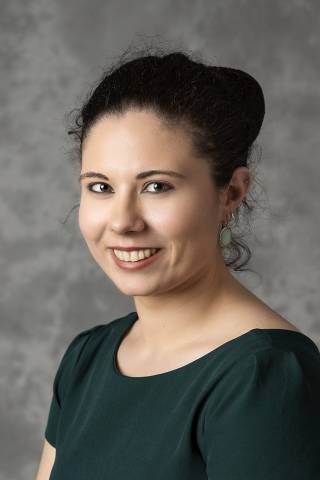
How would you describe your area of study or work?
As a PhD student, my work consisted of testing human cells for neuronal regeneration. The aim was to find quality attributes and use them as a therapy for spinal cord injury and to be able to monitor their production just like any other product quality control. Currently, I run an angel investment programme for healthtech and Life Sciences start ups.
What is your favourite part of your job/area of study/area of research?
During my PhD my favourite part was looking at the results of my experiments, analysing the data and drawing conclusions. It feels like you are achiviening a better understanding about the world than you did before and it is the best feeling in the world for me. I get the same feeling with my current job, looking at the great science in some of the start-ups and understanding it enough to promote it and explain why it is worth investing in.
What is the most valuable lesson you have learnt during your studies/career so far?
Mistakes and disappointing results are as much part of science and research as anything else. There are a lot of mistakes to be made to get to something good. Being able to fail strategically is the key. Fail big and early, but manage to learn a lesson each time.
Describe your day-to-day life as an engineer/engineering student
As a PhD student, I would start the day by firstly having a look at my cell culture and change their media (liquid they grow in). I would check my emails, plan and start experiments, (which could mean a good hour just preparing reagents and materials) and order reagents. Now my work is mostly desk-based and consists of reviewing pitch decks (presentations from a startup looking for funding), studying their tech and the market they are planning to operate in, and asking experts for their thoughts on particular topics.
What attracted you to participate in outreach and engagement activities?
Science opens your mind. It breaks down taboos and barriers between people and it is an infinite source of subjects to talk about. Growing up there was not that many people I could talk to about science or engineering. It was seen as a niche for nerds. There was an overall underestimation of how exciting it could be. As an adult I got to share my passion and inspire younger generations to pursue STEM subjects in school and be curious about them.
What is the best thing about being involved in outreach activities?
Talking about STEM! And the fact that because my audience is usually younger and/or without a STEM background, I have to break down complex concepts in order to be able to explain them in an accurate yet accessible way. That is a challenge that made me a better communicator, a better scientist and a better advocate for science and engineering as an economic development tool.
What type of activities or programmes have you led/run?
I did several STEM ambassador activities in schools where I talked about my background, why I became an engineer, explained my research to children as young as six years old and read science-related book with primary school children who needed to improve their litarecy, compreshension and numeracy skills. Last year I led and co-designed the first Integrated Engineering Programme (IEP) Summer school for Year 12 pupils. It was challenge-led and the aim was to solve an everyday problem affecting human health or wellbeing.
What outreach activity or programme are you most proud to have been involved with?
That would be the first IEP Summer School with the UCL Engineering Faculty. Being able to design the programme and see a younger generation tackle engineering design problems so swiftly and creatively was a privilege. It made me confident in the talent and skills of the engineers of tomorrow.
What advice would you give young people wanting to study or work in STEM-related fields?
You don’t need to be a genius to succeed in a STEM subject or career. Find an aspect about the world around that interests you. Read about it. Immerse yourself in this subject that enthuses you. You need passion more than anything. That will be the driving force for all your hard work to solve problems. If you enjoy what you do most of the time it won’t be a job, you will be having fun.
 Close
Close

